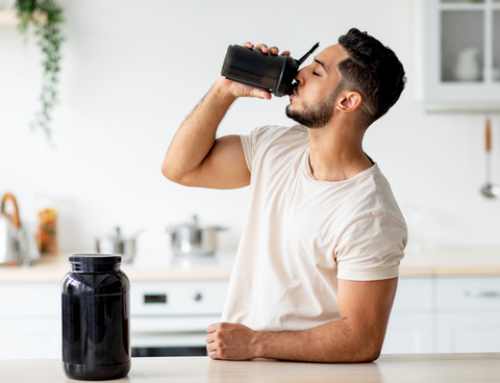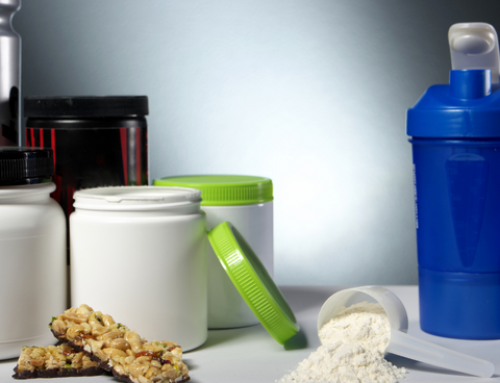Best Supplements for Your Workout
From high school to the pros, athletes-in-training are on the lookout for the best workout supplements to boost their performance. Once an athlete has trained for a few years, built up an impressive physique and is no longer generally regarded as a “beginner,” he or she often needs a tweak in the routine to make further progress.
The longer you train, the harder improvements are to come by. Yet sometimes a tiny change in your workout or diet is all you need to give your progress a real boost. One way to ignite gains and ramp up results is by introducing supplements into your routine. But with so many products on the market, selecting a safe, legitimate supplement can be confusing at best. To simplify the process, here are a few top products guaranteed to help you see improvements in your workout.
Caffeine
Good old caffeine—it’s not just the demotivated office worker’s best friend. Well-known for its ability as an afternoon pick-me-up, it can also become quite addictive. However, if used correctly, caffeine can give you a fantastic boost before a workout.
The best way to take in caffeine is by drinking regular coffee. Drinking a cup of strong, unsweetened black coffee 30 to 60 minutes before training is a surefire way to give yourself an extra edge. You can also take caffeine in supplement form or through an energy drink; but I caution against this approach, because energy drinks are often loaded with sugars and other additives, which can hinder your performance.
Don’t overdo the caffeine, though. Consuming it too often can reduce its effectiveness. Use it pre-workout only, and if you’re feeling particularly energetic before your session, skip it altogether.
BCAAs
Branched Chain Amino Acids, or BCAAs, are known as the “building blocks” of protein, because each molecule of protein is made up of 20 different amino acids. Since muscle is composed predominantly of protein, it makes sense that to build muscle, you need more protein. The three amino acids in BCAAs (leucine, isoleucine and valine) have been specifically associated with increasing protein synthesis and reducing protein degradation, thus improving the recovery process and aiding in muscle growth and repair.
Try taking five grams of BCAAs before your workout, five to 10 grams during training and another five grams immediately afterward.
Beta-Alanine
Beta-alanine is another amino acid, but it differs from the amino acids in BCAAs by acting as a buffer to lactic acid. This means that a decent pre-workout dosage can delay the onset of fatigue, increase the rate of muscle contractions and prompt overall improvement in your anaerobic threshold and strength endurance levels.
It’s fairly powerful stuff, so two to three grams right before training should be enough. When you first take it, you might experience a slight tingling sensation in your hands and face, but this is perfectly normal. If it persists for longer than an hour or two or becomes uncomfortable, don’t take any more and consult your physician immediately.
Supplements are certainly not essential, and there’s no point spending hard earned money on them if your diet and training plans aren’t up to scratch. But if you’re striving to reach the next level and have the dedication to push yourself, use supplements to tweak your routine.
RECOMMENDED FOR YOU
MOST POPULAR
Best Supplements for Your Workout
From high school to the pros, athletes-in-training are on the lookout for the best workout supplements to boost their performance. Once an athlete has trained for a few years, built up an impressive physique and is no longer generally regarded as a “beginner,” he or she often needs a tweak in the routine to make further progress.
The longer you train, the harder improvements are to come by. Yet sometimes a tiny change in your workout or diet is all you need to give your progress a real boost. One way to ignite gains and ramp up results is by introducing supplements into your routine. But with so many products on the market, selecting a safe, legitimate supplement can be confusing at best. To simplify the process, here are a few top products guaranteed to help you see improvements in your workout.
Caffeine
Good old caffeine—it’s not just the demotivated office worker’s best friend. Well-known for its ability as an afternoon pick-me-up, it can also become quite addictive. However, if used correctly, caffeine can give you a fantastic boost before a workout.
The best way to take in caffeine is by drinking regular coffee. Drinking a cup of strong, unsweetened black coffee 30 to 60 minutes before training is a surefire way to give yourself an extra edge. You can also take caffeine in supplement form or through an energy drink; but I caution against this approach, because energy drinks are often loaded with sugars and other additives, which can hinder your performance.
Don’t overdo the caffeine, though. Consuming it too often can reduce its effectiveness. Use it pre-workout only, and if you’re feeling particularly energetic before your session, skip it altogether.
BCAAs
Branched Chain Amino Acids, or BCAAs, are known as the “building blocks” of protein, because each molecule of protein is made up of 20 different amino acids. Since muscle is composed predominantly of protein, it makes sense that to build muscle, you need more protein. The three amino acids in BCAAs (leucine, isoleucine and valine) have been specifically associated with increasing protein synthesis and reducing protein degradation, thus improving the recovery process and aiding in muscle growth and repair.
Try taking five grams of BCAAs before your workout, five to 10 grams during training and another five grams immediately afterward.
Beta-Alanine
Beta-alanine is another amino acid, but it differs from the amino acids in BCAAs by acting as a buffer to lactic acid. This means that a decent pre-workout dosage can delay the onset of fatigue, increase the rate of muscle contractions and prompt overall improvement in your anaerobic threshold and strength endurance levels.
It’s fairly powerful stuff, so two to three grams right before training should be enough. When you first take it, you might experience a slight tingling sensation in your hands and face, but this is perfectly normal. If it persists for longer than an hour or two or becomes uncomfortable, don’t take any more and consult your physician immediately.
Supplements are certainly not essential, and there’s no point spending hard earned money on them if your diet and training plans aren’t up to scratch. But if you’re striving to reach the next level and have the dedication to push yourself, use supplements to tweak your routine.













